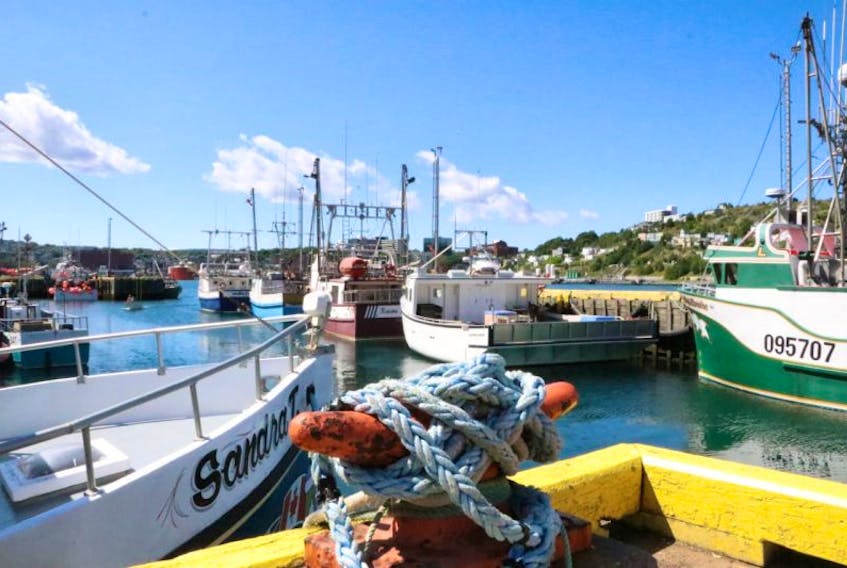Our fishing industry in Newfoundland and Labrador is in shambles, and yet politicians and decision-makers are blind to the fish bones pilling up in the graveyard, and with it, our prime industry, economy and our communities.
Either that, or they simply do not care or have a handle on this industry they are responsible for managing and growing.
Who is looking after our fishery? Where is the dialogue that we should be having about our most important industry? The silence from all levels of government is shocking and shameful.
Are they aware or concerned about the rapid expansion of the Canadian factory freezer trawler operations off our coasts while our groundfishery recovery is stalled and shrimp and crab fisheries in decline?
Are they not concerned about the dramatic increases in the export of our unprocessed fish for processing, packaging and delivery to the market? Thousands of direct jobs are being lost.
This undeniable fact does not appear to be of concern to either governments or their MPs/MHAs. Either they don’t realize the negative impact, or they don’t care as long as they are re-elected.
Are they even tracking these unprocessed shipments? Do they not see that this will result in the disappearance of the distinctive Newfoundland and Labrador presence in the world’s seafood markets?
Who is looking after our fishery? Where is the dialogue that we should be having about our most important industry? The silence from all levels of government is shocking and shameful.
Foreign control
What do we have to do enlighten and light the fire under fishery politicians and senior bureaucrats?
Or is it a case of them not working for their people in the sharing and managing of this common property resource, but rather for foreign interests?
If their politically motivated fishery policies do not cease immediately, major Scandinavian fishing interests will take control of our fisheries much earlier than some of us suspect.
These companies already have control of a portion of our struggling resource as part owners of factory freezer trawlers, catching and exporting fish quotas. They also own processing plants, plus access to trust agreements held by fishermen with assigned fish quotas. There is also a planned expansion of an aggressive and very successful Scandinavian shipping line which controls the movement of unprocessed products and other seafood in the North Atlantic.
Our group has tried unsuccessfully to get a judicial inquiry to make all interested parties fully aware of the industry’s true state. It would expose international involvement by the Scandinavians and Northwest Atlantic Fisheries Organization countries fishing daily on migrating fish stocks, that are struggling to recover from unrestricted fishing by factory freezer trawlers and freezer trawlers.
Media responsibility
And where are our journalists while this fish graveyard has been dug?
We have not had top-level investigative journalists interested in our industry since the early 1970s. On the other hand, the International Consortium of Investigative Journalists (ICIJ) did a masterful job in exposing the massive subsidization of Spanish and Portuguese by the EU. Those huge subsidies enabled these factory freezer trawlers to fish in distant waters, including the Grand Banks.
The absence of this investigative journalism has permitted political fishery policies to be implemented which are practically destroying our industry, which elevated Canada from 14th to sixth place in the world as a fish-exporting nation in 1949.
At the same time our industry was being destroyed, Iceland and Norway have been thriving, leading the way with technical advances and enhanced earnings. The size and diversity of the fishery we delivered to Canada were unmatched by any of those countries.
In July 1992, DFO announced a two-year ban on Canadian groundfishing. Our plants at Marystown, Burin, Catalina, Port Union, Trepassey, Harbour Breton, Port au Choix and Twillingate were employing thousands of people, many year-round. Twenty-five years have passed and the slight recovery of the groundfishery has stalled. Unmuzzled fishery scientists blame the practical destruction of caplin under continuing federal mismanagement.
The people of N.L., the media, the churches, ppposition parties, the municipalities and others must combine and apply every conceivable effort to force Premier Dwight Ball and his government to cease their existing destructive fisheries policy that provides very few jobs. Instead, the Trudeau government must be confronted to restore our once great fishery resource.
The survival of our fisheries, its participants and our many fishing communities, and their contribution to the economy, depends on putting down their graveyard shovels.
Gus Etchegary
Fishery Community Alliance
St. Philip’s









